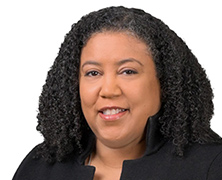As Black women become more visible in mergers and acquisitions, here is hoping that more join them
In June of 2020 during the height of the COVID-19 pandemic, like many New Yorkers, I left the city and was working remotely from a small rental in Narragansett, Rhode Island. As a private equity and M&A attorney, I was just beginning to see the market heat up in what would be a record-breaking deal environment for the next two years. I was getting used to spending my days on videoconferences, and still hadn’t learned to check the mute button before speaking, or purchased a ring light.
A colleague and I were excited to learn that we would be engaged to lead the acquisition of an online university with a large nursing program. As a former nurse practitioner, I was excited about this deal. We dialed into the introductory video conference and were surprised to see that from the client, to the debt finance lead, to the primary regulatory counsel, to our mergers and acquisition team, we were all black women. It wasn’t long before we could see the same realization dawning on the others on the line, and we began to discuss this openly: none of us had ever been on a client team led only by women before, let alone black women.
A year after that deal closed, I found myself in another new situation – this time, my partner Michelle Chan and I were opposite Renee Delphin-Rodriguez, another black woman M&A lawyer. I had never been opposite another black woman M&A lawyer before and neither had Renee. The composition of these deal teams was so unusual that both times, diversity was noted in the deal coverage. While I understand the significance of this given the historic lack of diversity in the legal industry – and particularly in transactional practices – and appreciate that the visibility that might lead others to consider private equity and M&A to be a viable career path, it’s still a bit mind boggling to me that it is of note when people who look like me do our jobs. I’m hopeful that these experiences are signs of change, and that the visibility of black women in transactional practice inspires others to follow suit.







